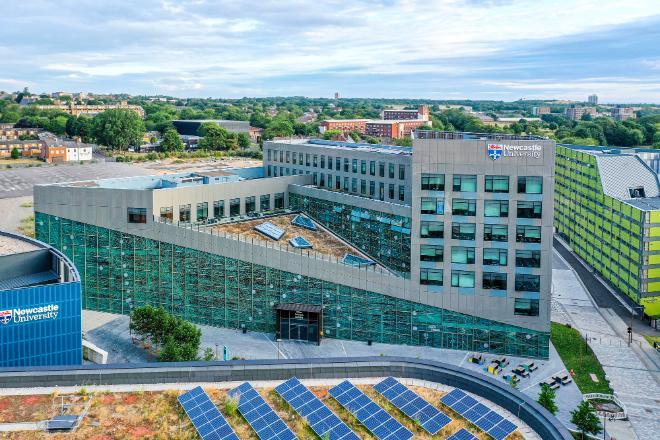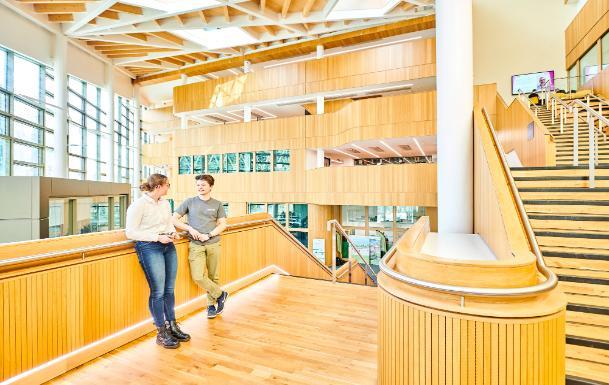Program
Provisionary Conference Program
Link to the compact and printable version of the Conference Program.
14 July, 2025
Registration & Breakfast: 8:15 - 9:00
Introduction & Graham Welcome to USB: 9:00 - 9:15
Keynote 1: Prof. Jim Webber: 9:15 - 10:15
Coffee Break: 10:15 - 10:45
Language and Models: 10:45 - 12:15
Session Chair: Prof. Mario Nascimento
- Shohaib Shaffiey and Peter Revesz: "Generative Adversarial Networks Reveal Relationship of the Carian, Elder Futhark, Old Hungarian and Orkhon Scripts"
- Eman Alamoudi and Ellis Solaiman: "EHSAN: Leveraging ChatGPT in a Hybrid Framework for Arabic Aspect-Based Sentiment Analysis in Healthcare"
- Michael Mason, Sam Kirchner and Carter Powell: "Automated Glyph Feature Detection Using Convolutional Neural Networks"
- Hissah Almousa and Ellis Solaiman: "A Vision for Robust and Human-Centric LLM-Based QR Code Security"
Lunch Break: 12:15 - 13:15
Classification: 13:15 - 15:15
Session Chair: Prof. Peter Z. Revesz
- Alexander Stahl: "Exploring Classification with Spectral Transformation"
- Despina Tawadros, Wenhui Yang, Lena Weise and Vanessa Meyer: "Optimizing Classification Accuracy with Simulated Annealing in k-Anonymity"
- Selahattin Barış Çelebi, Ammar Aslan and Mutlu Canpolat: "Predicting Gelation in Copolymers Using Deep Learning through a Comparative Study of ANN, CNN, and LSTM Models with SHAP Explainability"
- Mehdi Rabiee, Sergio Greco, Reza Shahbazian and Irina trubitsyna: "A Total Variation Regularized Framework for Epilepsy-Related MRI Image Segmentation"
- Mary Dufie Afrane, Yao Xu and Lixin Li: "Enhancing Flight Delay Prediction with Network-Aware Ensemble Learning"
Coffee break: 15:15 - 15:45
Distributed Systems: 15:45 - 17:00
Session Chair: Dr Giacomo Bergami
- Kasra Mojallal, Ali Abbasi Tadi and Dima Alhadidi: "FedMod: Vertical Federated Learning Using Multi-Server Secret Sharing"
- Ye Liu, Paul Ezhilchelvan, Yingming Wang and Jim Webber: "Throughput-Driven Database Replication Using a Ring-Based Order Protocol"
- Edvan Soares and Valeria Times: "Blockchain-Backed Fuzzy Search for Semi-Structured Translation Data: A Scalable Hybrid Approach with Hyperledger Fabric and Elasticsearch"
Welcome Reception: 18:00 - 20:00
15 July, 2025
Registration & Breakfast: 8:00 - 8:45
Keynote 2: Dr. Laura Heels: 8:45 - 9:45
Coffee Break: 9:45 - 10:15
Query Answering and Education: 10:15 - 11:45
Session Chair: Dr. Laura Heels
- Tidenek Fekadu Kore, David Sarrimia, Myoung-Ah Kang and Francois Pinet: "Towards Sustainable DBMS: A Framework for Real-Time Energy Estimation and Query Categorization"
- Banan Alkhateeb and Ellis Solaiman: "Context-Aware Visualization for Explainable AI Recommendations in Social Media: A Vision for User-Aligned Explanations"
- Maryam Mosleh, Ellis Solaiman and Marie Delvin: "Transparent Adaptive Learning via Data-Centric Multimodal Explainable AI"
- Vanessa Meyer, Lena Wiese and Ahmed Al-Ghezi: "Analyzing Student Feedback to Assess NoSQL Education"
Lunch Break: 11:45 - 12:45
Tutorial 2: Prof. Mario Nascimento + Coffee Break (2:30pm): 13:00 - 16:30
Social Dinner: 17:00 - 19:00
16 July, 2025
Breakfast: 8:00 - 9:00
Tutorial 2: Neo4j: 9:00 - 12:00
Lunch Break: 12:00 - 13:00
Data Mining: 13:00 - 14:30
Session Chair: Prof. Lixin Li
- Peter Revesz and Mohanendra Siddha : "Data Mining for Language Superfamilies Using Congruent Sound Groups"
- Joslin Ishimwe, Adrian Ratwatte and Prince Ngiruwonsanga: "Computational Decipherment and Cross-Linguistic Analysis of Linear A, Linear B, and Swahili"
- Harsh Tamkiya, Gunjit Agrawal, Chiradeep Debnath and Peter Revesz: "Automated Identification of Allographs among the Indus Valley Script Signs"
Coffee Break: 14:30 - 15:00
Industrial Panel: 15:00 - 16:00
Closing Remarks: 16:00 - 17:00
Urban Science Building at Newcastle University

Located in the city’s new Helix quarter, a city-centre development fast becoming renowned as a global centre for innovation, the 12,800 m² Urban Sciences Building (USB) houses Newcastle University’s School of Computing alongside a series of innovative labs focused on research into the urban environment.
Opened in 2017, it has set a new benchmark for building design. Not only is it an exemplar of sustainable construction and electrically led design, it is also a ‘living laboratory’ – a smart building designed to enable continuous research and learning in the field of energy management. Newcastle University is known for its pioneering spirit and, with innovation a core element of the brief for the USB, a number of PhD researchers now have their hands on the data from the building and are already creating some fascinating outputs that we believe are a first in building management.



